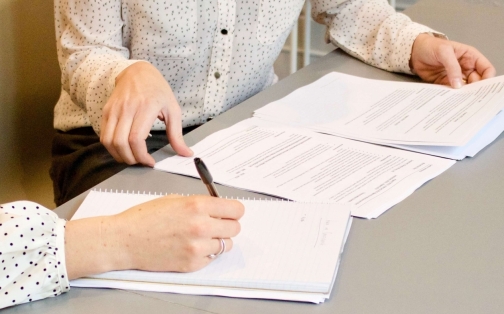
- Home
- News
- Wills, Probate & Trusts
- The Importance of Making a Will

The Importance of Making a Will
For many, a long-term look at their future doesn’t extend past matters after they die.
Seen as a focus for later in life, getting your affairs in order is often pushed down the list of priorities for the here and now.
But, with the chance to create order and reassurance after you die, why would you leave that to chance? Why create uncertainty for loved ones? Why create the potential for disagreement?
This article looks at the importance of making a Will sooner rather than later.
What is a Will?
A Will is a legal document that formally sets out your wishes; explaining what you would like to happen to your assets and personal belongings after you die.
If there is no Will, the Rules of Intestacy apply and your possessions may not end up where you want them to.
Why should you make a Will?
If you die without making a Will, or if your Will is out of date because of marriage, divorce, or a change in circumstances, you will die Intestate.
It is then up to the Courts to decide who can administer your estate following The Rules of Intestacy. This can cause problems and mean your assets do not get distributed in the way you intend amongst your family and loved ones. It is left to chance.
Example: Upon marriage, any current Will is revoked (unless it was made in contemplation of marriage). This means that anything you may have allocated to children from another relationship in this Will would not be effective.
If there was no new Will written, your new spouse could inherit the majority of your estate (Intestacy Rules provide for the first £322,000.00). This would potentially leave any children from a previous marriage without anything without negotiating with the new spouse or bringing a claim on the estate.
All of this can be so easily resolved with a Will!
Common Myths
“My partner is my Common Law spouse and will be treated as my spouse when I die.”
There is no legal recognition of ‘Common Law partners’. The term does not exist in Law. A surviving partner who wasn’t married or in a civil partnership with the deceased, has no automatic right to inherit under the Intestacy Rules, regardless of how long they have lived together. Common Law spouses do not benefit from the Inheritance Tax Allowances available to spouses/civil partners either.
Couples who have lived together for many years can find that non-divorced spouses could inherit everything.
We often think of common law affecting our young people, but the most vulnerable group are those in second or subsequent relationships.
All of this can be so easily resolved with a Will!
“The children’s Godparents will bring them up if I die.”
The only way to appoint guardians for your children is under your Will or in a separate Deed.
If you do not leave a Will or Deed, the Court will be required to appoint a Guardian for your children, which could mean your family must go to Court to seek Child Arrangement Orders; this could lead to family disputes and potentially even foster care.
All of this can be so easily resolved with a Will!
Writing a Will allows you to appoint Guardians, to leave a Letter of Wishes outlining how you would like them to be raised and make financial provisions to ensure they can be adequately cared for.
“I don’t need a Will; my family already know my wishes.”
This may be true, but your family will have no control over what happens, because the Law will dictate who administers your estate, inherits your assets and cares for your children if you die without a Will.
All of this can be so easily resolved with a Will!
“The government won’t get their hands on any of my money.”
Where there is no Will naming a beneficiary and no beneficiary can be found under the rules of Intestacy, any unclaimed assets are passed to the Crown. Figures from the Kings Court Trust 2024 say that last year the Crown received £33.5 million from the estates of people who died Intestate, up from £17 million the previous year.
All of this can be so easily resolved with a Will!
Act today
Making a Will is your reassurance that your loved ones are cared for, and your savings and possessions go where you want them to.
It’s not as complicated as you might think to write a Will, and often people find great peace of mind from talking through their wishes with a professional and making plans for their estate.
Talk to one of our experienced Wills, Probate & Trusts team today and take the first step towards creating your Will.
Share this article
Meet the Wills, Probate & Trusts Team

Rebecca Harbron Gray
Head of Wills, Probate & Trusts





